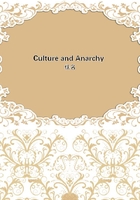
第9章
30 So far, then, is culture from making us unjust to the Nonconformists because it forbids us to worship their fetishes, that it even leads us to propose to do more for them than they themselves venture to claim. It leads us, also, to respect what is solid and respectable in their convictions. Not that the forms in which the human spirit tries to express the inexpressible, or the forms by which man tries to worship, have or can have, as has been said, for the follower of perfection, anything necessary or eternal. If the New Testament and the practice of the primitive Christians sanctioned the popular form of church-government a thousand times more expressly than they do, if the Church since Constantine were a thousand times more of a departure from the scheme of primitive Christianity than it can be shown to be, that does not at all make, as is supposed by men in bondage to the letter, the popular form of church-government alone and always sacred and binding, or the work of Constantine a thing to be regretted.
31 What is alone and always sacred and binding for man is the making progress towards his total perfection; and the machinery by which he does this varies in value according as it helps him to do it.
The planters of Christianity had their roots in deep and rich grounds of human life and achievement, both Jewish and also Greek; and had thus a comparatively firm and wide basis amidst all the vehement inspiration of their mighty movement and change. By their strong inspiration they carried men off the old basis of life and culture, whether Jewish or Greek, and generations arose who had their roots in neither world, and were in contact therefore with no full and great stream of human life. If it had not been for some such change as that of the fourth century, Christianity might have lost itself in a multitude of hole-and-corner churches like the churches of English Nonconformity after its founders departed; churches without great men, and without furtherance for the higher life of humanity. At a critical moment came Constantine, and placed Christianity,--or let us rather say, placed the human spirit, whose totality was endangered,--in contact with the main current of human life. And his work was justified by its fruits, in men like Augustine and Dante, and indeed in all the great men of Christianity, Catholics or Protestants, ever since.
32 And one may go beyond this. M. Albert Réville, whose religious writings are always interesting, says that the conception which cultivated and philosophical Jews now entertain of Christianity and its Founder, is probably destined to become the conception which Christians themselves will entertain. Socinians are fond of saying the same thing about the Socinian conception of Christianity. Now, even if this were true, it would still have been better for a man, during the last eighteen hundred years, to have been a Christian and a member of one of the great Christian communions, than to have been a Jew or a Socinian; because the being in contact with the main stream of human life is of more moment for a man's total spiritual growth, and for his bringing to perfection the gifts committed to him, which is his business on earth, than any speculative opinion which he may hold or think he holds. Luther,--whom we have called a Philistine of genius, and who, because he was a Philistine, had a coarseness and lack of spiritual delicacy which have harmed his disciples, but who, because he was a genius, had splendid flashes of spiritual insight,--Luther says admirably in his Commentary on the Book of Daniel: 'A God is simply that whereon the human heart rests with trust, faith, hope, and love. If the resting is right, then the God too is right; if the resting is wrong, then the God too is illusory.' In other words, the worth of what a man thinks about God and the objects of religion depends on what the man is;and what the man is, depends upon his having more or less reached the measure of a perfect and total man.
33 Culture, disinterestedly seeking in its aim at perfection to see things as they really are, shows us how worthy and divine a thing is the religious side in man, though it is not the whole of man. But while recognising the grandeur of the religious side in man, culture yet makes us also eschew an inadequate conception of man's totality.
Therefore to the worth and grandeur of the religious side in man, culture is rejoiced and willing to pay any tribute, except the tribute of man's totality. Unless it is proved that contact with the main current of national life is of no value (and we have shown that it is of the greatest value), we cannot safely, even to please the Nonconformists in a matter where we would please them as much as possible, admit their doctrines of disestablishment and separation.